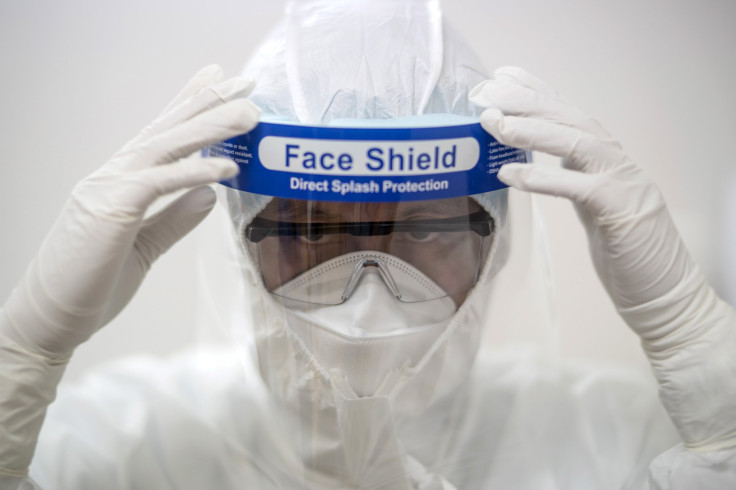MERS Outbreak: 2 Promising Treatments Identified By Researchers

Researchers have discovered and validated two potential treatments for the deadly Middle East Respiratory Syndrome (MERS), which they say could lead to the first treatment for the virus.
Researchers from the University of Maryland School of Medicine and Tarrytown, New York-based Regeneron Pharmaceuticals Inc. found two potential antibodies that show promise in treating and preventing MERS, according to a study, published Monday in the journal Proceedings of the National Academy of Sciences (PNAS).
"While early, this is very exciting, and has real potential to help MERS patients," Matthew Frieman, of the University of Maryland School of Medicine, one of the study’s lead researchers, said in a press release. "We hope that clinical study will progress on these two antibodies to see whether they can eventually be used to help humans infected with the virus."
The antibodies, known as REGN3051 and REGN3048, were found to be able to neutralize the virus. At the Regeneron Pharmaceuticals, it was found to be effective in mice infected with MERS. The company used its own process of engineering and antibody development, which reportedly shortens the usually years-long drug development process. In cases where an infected body cannot produce antibodies fast enough to counteract an attacker, antibody-based treatments like Regeneron’s can be used to prime the body to create more.
“Instead of just trying to invent new drugs, we also invent new technologies that enable us to make new drugs more reliably and more rapidly,” Neil Stahl, executive vice president of research and development at Regeneron, said, according to the MIT Technology Review.
The treatment, however, has not been proven to be effective in humans yet.
The researchers also announced the development of a new strain of genetically modified mice that are partially humanized in order to make them more useful in MERS tests. "Mice are typically not susceptible to MERS," Frieman said. "This new mouse model will significantly boost our ability to study potential treatments and help scientists to understand how the virus causes disease in people."
South Korea’s MERS outbreak began last month when a traveler, returning from Saudi Arabia, infected over 180 people both directly and indirectly before he was found to have the disease. According to latest official estimates, 33 people have died from MERS in South Korea, and thousands of people have been quarantined and schools closed across the nation. The outbreak is the largest outside Saudi Arabia, where it is believed to have originated.
The outbreak has been described as a “super-spreading” event where MERS, which is normally not very contagious, spread rapidly through the country, leading to worries that it may be mutating to become more virulent and contagious.
Most recently, the disease spread to Thailand, which reported its first case earlier this month. The person has since been cured.
© Copyright IBTimes 2024. All rights reserved.











